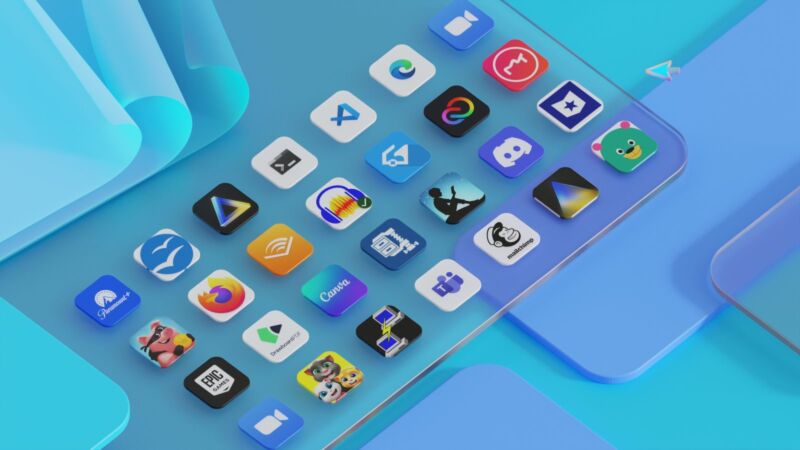
Windows 11's first major update, also called Windows 11 22H2, is due to be released to the public on September 20, according to separate reports from The Verge and Windows Central.
The update has been available in near-final form in Microsoft's Windows Insider Preview channels since May, and we've already covered most of its major changes—Windows 11 22H2 will include a few new security features (and new default settings for existing features), a redesigned Task Manager, new touchscreen gestures and window management features, and tweaks for the Start menu and taskbar, among other things. It also continues to replace old bits of Windows 8- and 10-era UI (like the brightness and volume indicators) with rounded Windows 11-style versions, bringing more visual consistency to Windows PCs.
Like all major Windows updates, it likely won't be offered to all current Windows 11 users on September 20. Microsoft usually sends the update to a small number of PCs first and gradually expands availability until all Windows 11 PCs have installed it. Users can manually install new updates by downloading an ISO or using the Windows 11 Installation Assistant from this page.
Microsoft's update plans for Windows have changed a lot in the last year, and they're reportedly still in a state of flux. The company said last year that Windows 11 would receive major updates once a year and that Windows 10 would move from its twice-a-year update model to the same once-per-year schedule. But even as the pace of major updates has officially slowed down, Microsoft has also made some changes to its development and release practices that allow it to roll out small- to medium-size changes at shorter intervals. In the 10 months since Windows 11 was released, we've gotten a long list of user interface tweaks, updates for a number of preinstalled first-party apps, and Android app support. Microsoft also reportedly plans to go back to releasing new numbered Windows versions every three years or so, although the company has neither confirmed nor denied this.
For Windows 10 users who can't or don't want to install Windows 11, Windows 10 is getting its own 22H2 update. Microsoft released a preview build for it late last month, but the company isn't talking about what this update actually does. It's not likely to include many big user-facing improvements.
reader comments
89